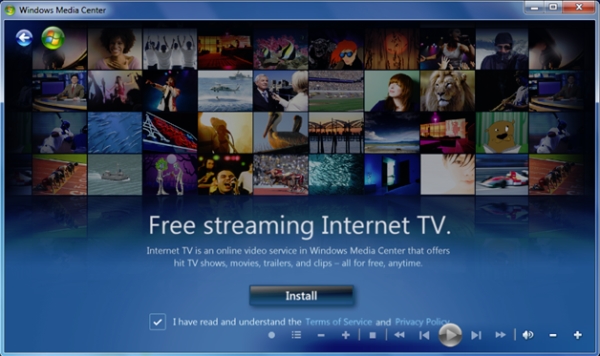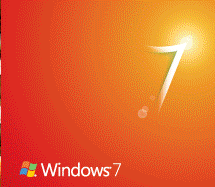
Microsoft wins round one in its battle against Vista
Anyone who would continue to frame the consumer PC market in 1980s terms, as a continuance of the old war between Microsoft and Apple, would be sorely disappointed by this morning's earnings news from Microsoft. The measured candor that continues to emerge from CFO Chris Liddell suggests that Macintosh and iPhone are not even on the company's radar at the moment, and that his real battle is against a tougher and more menacing foe: Vista.
As of yesterday, it was officially okay for Microsoft to pronounce Vista part of its past, to "un-support" it from a marketing standpoint (though certainly not from a service standpoint). Steering Microsoft clear of the perfect storm -- the effects of the global recession, coupled with the peak in negative attitude toward Vista -- means putting Vista behind it, placing it in the adversarial role normally characterized by someone who looks a lot more like Justin Long than John Hodgman.

Mac Boot Camp to support Windows 7 by year's end
Apple today promised to update its Boot Camp partitioning tool to support Windows 7 Home Premium, Professional, and Ultimate before the end of the year.
In a support article posted to Apple's site today, it says the Boot Camp upgrade will be brought to most Intel-based Macs running OS X Snow Leopard. The sole exception at this point is the 2006 line, where Windows 7 will not be supported by the 17" and 20" iMac, 15" and 17" Macbook Pro and 2.66GHz or 3GHz Mac Pro. These units represent the first generation of Intel-based Macs, and represent a transitional period in the Mac architecture.

Microsoft wows Windows 7 crowd with Internet TV
While most of the Windows 7 features demo'd at today's New York City launch were already known about far and wide, Microsoft surprised a lot of the crowd with Internet TV, a streaming media capability that just might some day spur consumers to ditch pricey cable TV services like Time Warner and Cablevision.
Internet TV lets you stream video and audio programming directly into Windows 7 Media Center, without the hassles of going to myriad Web sites and downloading multiple players, said Microsoft rep Brian Yee, in an interview with Betanews at the Microsoft bash.

Kindle goes multitouch on Windows 7
Hitching its wagon to the Windows 7 star today, Amazon announced the upcoming availability of Kindle for PC, a free Windows 7 optimized e-reader program that syncs with a user's Kindle, and allows PC-based reading and library building.
Just like Kindle for iPhone, the software uses Amazon's Whispersync functionality to keep users on the same page (literally) as their Kindle. Also like the iPhone application, Kindle for PC users running Windows 7 will be able to utilize multi-touch gestures such as pinch zooming and finger swipes to turn pages.

Microsoft misses a perfect opportunity for Windows 7 and multitouch
Here are some observations after having watched Microsoft CEO Steve Ballmer's Windows 7 rollout, as streamed live from a Soho loft earlier this morning: Although I'm on record as praising Windows 7 (at Vista's expense), Microsoft missed a window here to make its new product more tangible and more interesting to consumers.
We saw plenty of demonstrations today about multitouch, which will at some point be perceived as a key feature of Windows 7 once more people are able to get their hands on it. But the only two routes Microsoft presented this morning were through expensive touch-sensitive TVs (which don't make sense to folks who prefer remote control) and through a new class of PCs that has yet to find a proper form factor, let alone make its way from the factory.

Live from the NYC Windows 7 press event
The world pretty much knows what Windows 7 contains, thanks to technology previews and early releases to developers. So what's left for anyone to be surprised about? Microsoft CEO Steve Ballmer gave a hint as to a possible answer this morning on NBC's Today program, telling host Matt Lauer that one of the most noticeable new features of the operating system will be multitouch. With Apple premiering its "multitouch mouse" a few days early, did Ballmer have something similar in mind?
Betanews' Jacqueline Emigh is with the press contingent in New York City, and is filing live updates from the scene.

Windows 7: Vista without the crap
Download Microsoft Windows 7 Upgrade Advisor 2.0 from Fileforum now.
Here is the essential information you need to know if you're a Windows Vista user considering whether to upgrade to Windows 7: Yes.

The Windows 7 launch: The cultural event of the entire afternoon
Have you reserved your copy of Windows 7 yet? Did you book off work? Get a babysitter for the kids? Stock up on Red Bull and Doritos?...No? If you're one of the dozens who pine for midnight door-crasher sales at the electronics big box store and Rolling Stones-themed launch events, you may want to make alternate plans.
For anyone who doesn't live in a cave in Afghanistan (and even for a few folks who do), this week could be the most exciting one in an age as Microsoft launches its newest -- and possibly company-saving -- operating system, Windows 7, on Thursday. But 14 years after it redefined the rock-star launch party with Windows 95, and nearly four years after having invested a half-billion dollars selling us Vista, this time around, Microsoft is taking a lower-key approach.

Mac fanboys should get a life and some Windows 7 common sense
I have to laugh at the sudden, slew of Mac bloggers taking swings at Windows 7 and asserting that Macs will continue to sell well after Microsoft's newest OS ships. Feeling a little defensive are we, bros? Their reaction shows worry that the thing they profess against -- surging PC sales that swamp Macs -- may yet be reality.
Windows 7 is simply Microsoft's best operating system ever. Mac fanboys should worry and circle together in defensive posture. Collectively, they're making a last stand against the PC giant. Please, please, boisterous Mac defenders, stand in the front lines and receive the first blows. You deserve them.

No, Windows 7 isn't slower than Vista, even at booting up
The manufacturer of a Windows maintenance toolkit featured on our Fileforum told CNET's Ina Fried last week that it believes boot times for Windows 7 are typically slower than boot times for Windows Vista. Iolo Technologies told Fried that it gauged the amount of time required for the CPU to reach a "true idle state."
As many veteran Windows users already know, the operating system doesn't actually boot to an "idle state" -- it's not DOS. Since that time, Iolo has been characterizing the time it stops its stopwatch as the time that the CPU is "fully usable," which seems rather nebulous.

Windows 7 OEM price even cheaper if you get Vista Upgrade first

Opponents of Windows 7 IE plan label browser ballot screen a 'threat'
In a complete reversal of roles for at least one of the principal advocates for equal access to Windows Web browsers, an attorney for the European Committee for Interoperable Systems told the European Commission in a statement published by The Wall Street Journal today that he now sees the possible inclusion by Microsoft of a Web browser selection ballot for European users of its upcoming Windows 7 operating system as a threat to those users.
Last July, Microsoft submitted a proposal to the European Commission that it hoped would comply with its demands to unbundle Internet Explorer 8 from Windows 7, and give users a choice of competing browsers. "Nothing in the design and implementation of the Ballot Screen and the presentation of competing Web browsers will express a bias for a Microsoft Web browser or any other Web browser," the proposal reads, "or discourage the user from downloading and installing additional Web browsers via the Ballot Screen and making a Web browser competing with a Microsoft Web browser the default."

Microsoft's Windows 7 House Party prep video is a real party pooper
Sometimes buzz is the last thing a company should want.
Microsoft's lame Windows House Party prep video is the rage of the Web right now -- and that's not good. I refrained from blogging yesterday but have been called to action. This morning, Interpret's Michael Gartenberg tweeted: "How have you not weighed in on the House Party videos? Are you just laughing too hard... We need some JW analysis here please." OK. OK. I'll break my silence.

Preview of Windows 7 netbooks, PCs from Asus, Samsung, and ViewSonic
In a flashback to the more prosperous years before the current "deep recession," hordes of truly enthused journalists crowded dozens of vendors' booths at a revitalized Pepcom pre-holiday event in New York City last week, waiting for their turns to get up close and personal with forthcoming consumer electronics wares.
ViewSonic, a company known until now mostly for its monitors, introduced a total of four new PCs at Pepcom's press event Thursday night.

Why I chose Windows 7 over Snow Leopard (and you should, too)
Last week, I returned to using Windows 7 after spending the summer on a 13-inch MacBook Pro. Apple almost had me there for awhile, but I'm back where I belong and satisfied with the switch. Given that Apple released Snow Leopard a couple of weeks ago, Windows 7 officially launches October 22nd and there is plenty of geek debate about which OS is better, it's appropriate time to tell the story about how I went -- in the words of J.R.R. Tolkien -- "there and back again."
First, some background. I am a longtime Mac and Windows user. I have used Windows pretty much since its release in the early 1990s and Macs since December 1998, when I carted a Bondi Blue iMac out of a CompUSA. Based on my reading comments, many Betanews readers are religious about their platform choices; I am not. Mac OS and Windows are just tools to me. I don't dogmatically defend either platform. I'm neither Mac or Windows fanboy. My work requires using both operating systems, and for convenience one usually is primary. That said, I've flopped between platforms for more than a decade.
